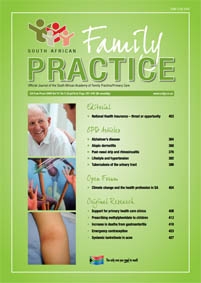Protective Role of Vitamin D as a Cellular Immuno-Modulator in Mycobacterium Tuberculosis Infected Health Care Workers
Keywords:
vitamin D, TB, HIV, health care worker
Abstract
Background: Specific environmental and host-related factors support the epidemic of tuberculosis (TB) in South Africa. Epidemiological data show high-risk ratio to acquire TB infection by health care workers (HCW). Methods: Current literature review will provide new information on the protective role of vitamin D in controlling of the TB epidemic and why old preventative nutritional measure of vitamin D-fortified pasteurized milk may contributed in decrease of the TB epidemic in USA during the second half of the 20th century. Results: The risk ratio of acquiring TB is over 300 times higher for South African HCW then American HCW according to the ratio of incidence of TB in these 2 countries. Recent published research in human physiology, pathophysiology and clinical medicine showed that vitamin D supplementation could optimize innate protection against the development of tuberculosis and correct host-related susceptibility to tuberculosis. Conclusion: Specific host-related factors in high-risk environment predispose local HCW to acquire the TB infection. Long-term vitamin D supplementation is a low cost measure, which may overcome host-related innate defense limitations and improve outcomes.
Published
2009-05-05
Section
Correspondence
By submitting manuscripts to SAFP, authors of original articles are assigning copyright to the South African Academy of Family Physicians. Copyright of review articles are assigned to the Publisher, Medpharm Publications (Pty) Ltd, unless otherwise specified. Authors may use their own work after publication without written permission, provided they acknowledge the original source. Individuals and academic institutions may freely copy and distribute articles published in SAFP for educational and research purposes without obtaining permission.

